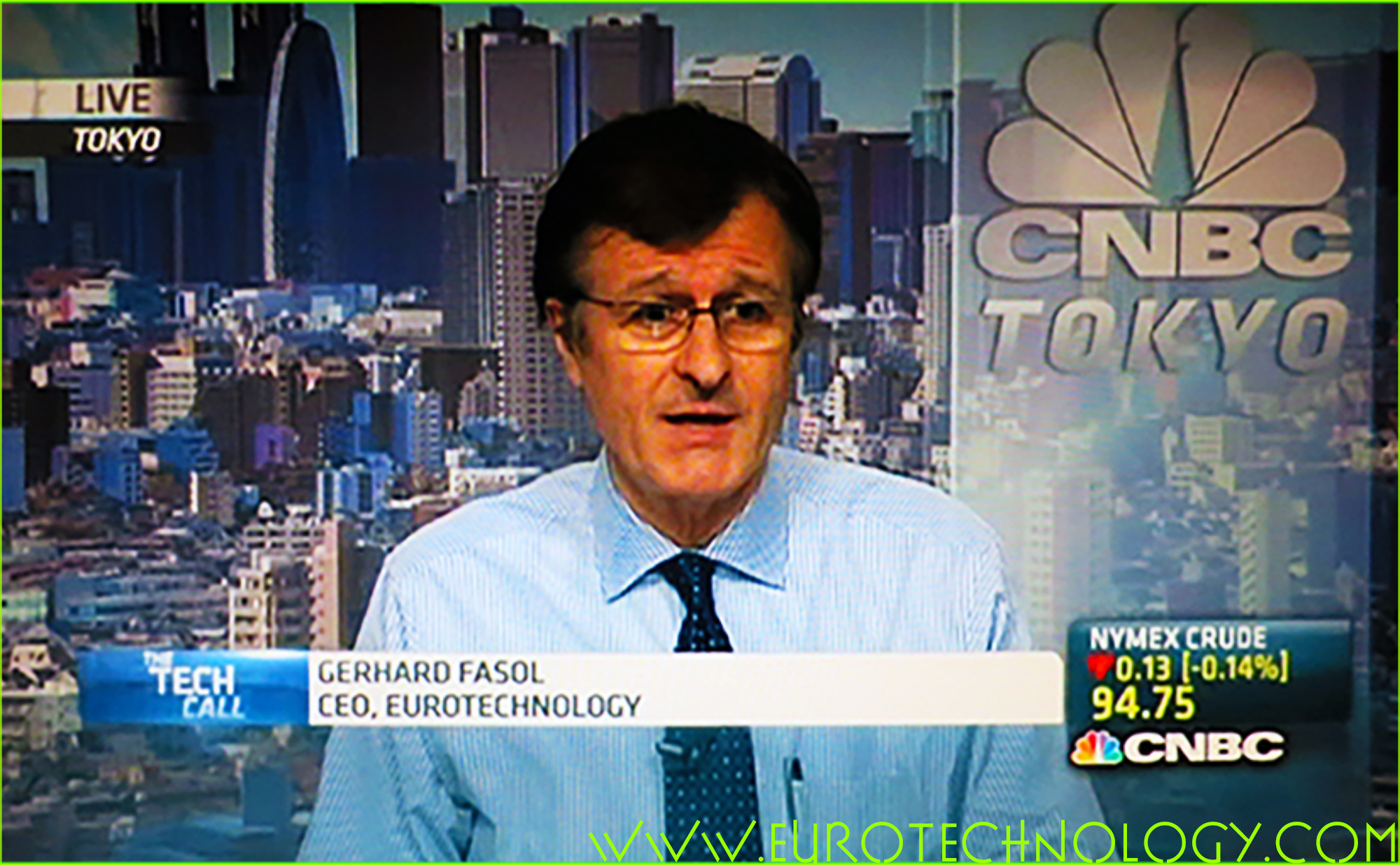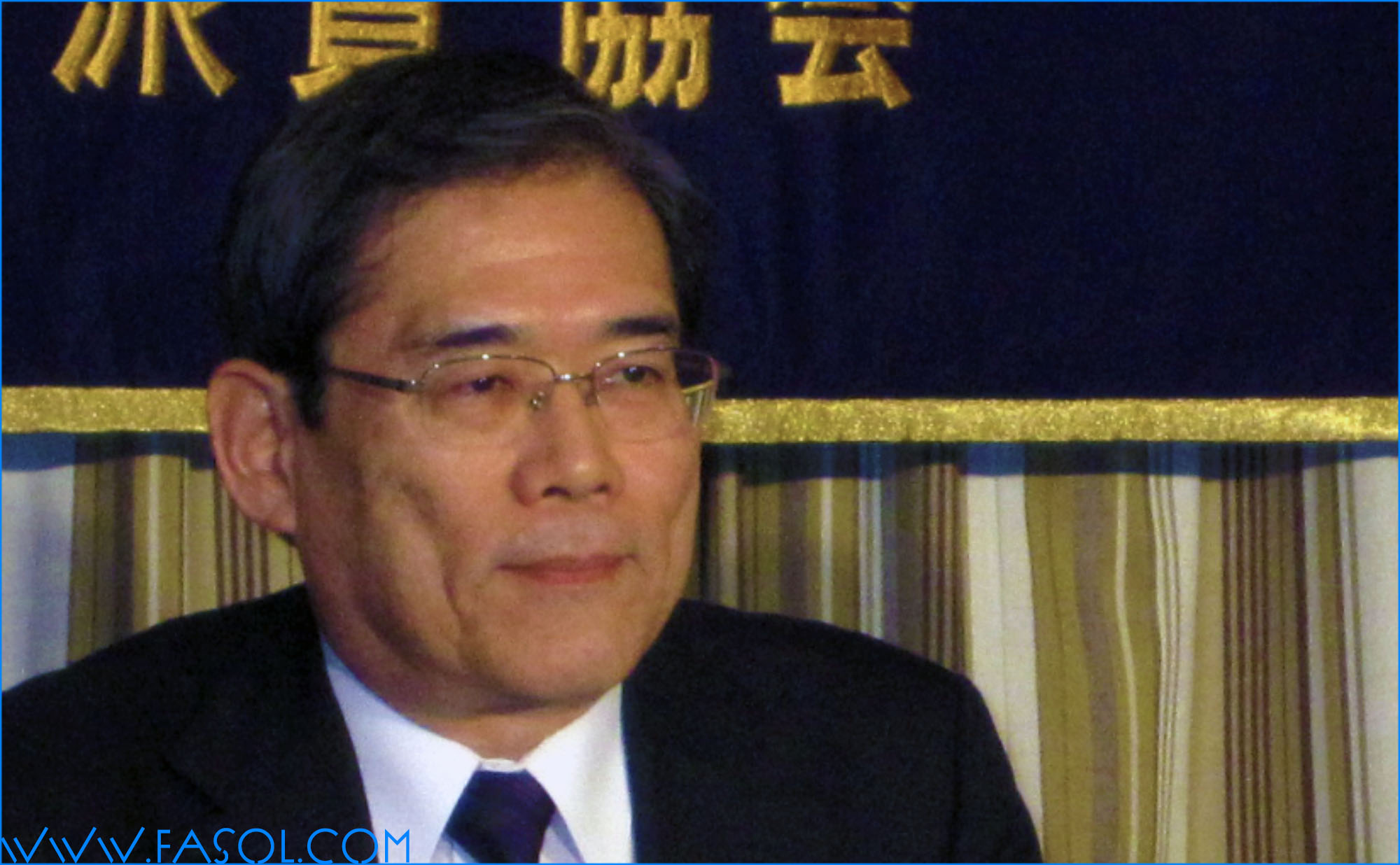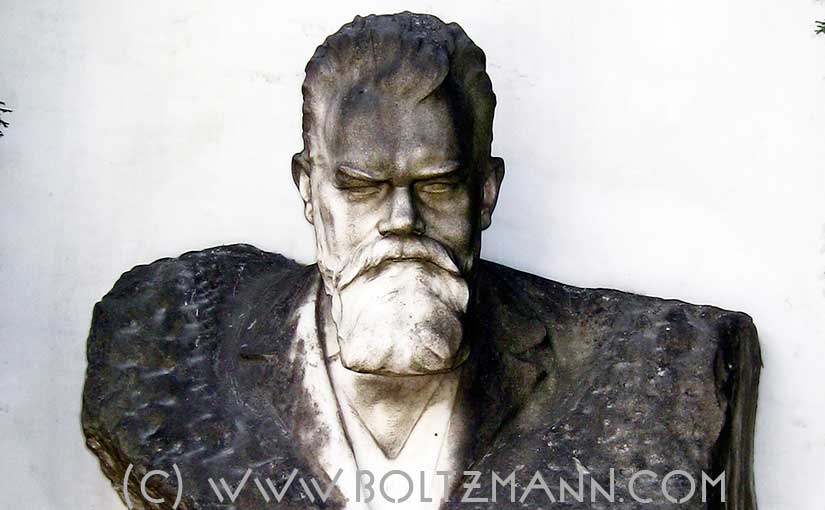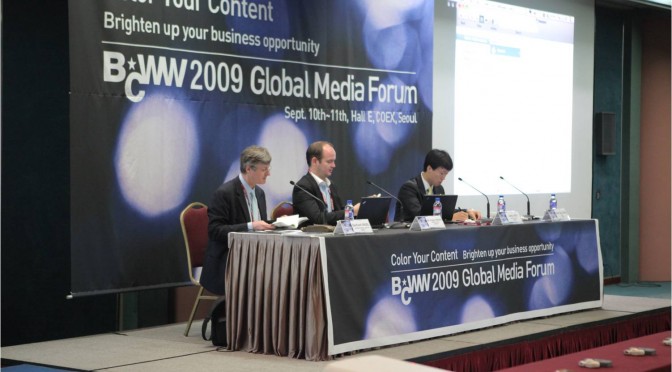Gerhard Fasol. news. events.
-
Gave presentation to the Telecommunications Committee of the American Chamber of Commerce in Japan (ACCJ) on October 7, 2009. My talk was attended by about 30-40 executives from major global telecom operators, global banks, new-age payment companies, and from major internet companies. Outline: What is money? Medium of exchange Unit of account Store of value…
-
The total solar eclipse could be seen clearly today around 11:13am in Tokyo – however in Tokyo the coverage was not total. Here is a picture taken with a standard Canon digital camera: Copyright·©2013 ·Eurotechnology Japan KK·All Rights Reserved·
-
More Drastic Changes Needed at Sony (Airtime: Thursday, May 14, 2009) Read more about SONY and Japan’s electrical industry sector in our J-ELECTRIC report (pdf file) Read more about SONY and Japan’s electrical industry sector: http://www.eurotechnology.com/store/j_electric/ Copyright (c) 2013 Eurotechnology Japan KK All Rights Reserved

-
It’s not all doom and gloom here in Japan. Nintendo’s sales and operating profits are rising 8.8% year-on-year. KDDI saw its net profits increasing 59% year on year. Yahoo Japan increases dividends by 22%-25% for 2008. Who are today’s winners in Japan’s IT industry? Gerhard Fasol will show us how and why some great Japanese…
-
Professor Junichi Hamada: expert on law of journalism, freedom of press and media regulation Attended Professor Junichi Hamada’s presentation at Tokyo University. Professor Hamada is expert on the legal aspects of journalism, freedom of press and media regulation. Professor Hamada will be the new President of Tokyo University from April 2009. In his presentation Professor…

-
on Friday, 20th February 2009 (Boltzmann’s birthday, 165 years ago) 14:00 Welcome by HE the Ambassador of Austria to Japan 14:05-14:35 Hisashi Kobayashi, Sherman Fairchild University Professor Emeritus, Princeton University, Executive Advisor, National Institute for Information and Communications Technology (NICT), Japan. “Ludwig Boltzmann: His Impacts on Information and Communications Technologies” 14:35-14:45 Coffee Break 14:45-15:15 Gerhard…

-
Ludwig Boltzmann was one of the most important physicists and philosophers: it is almost impossible for any engineer, chemist or physicist to do a day’s work without using Boltzmann’s tools and results every day. Ludwig Boltzmann is this author’s and Eurotechnology Japan KK’s founder’s great grandfather – and his excellence is our company’s guiding light.…
-
Was invited to coffee with the Foreign Minister of Austria, Mr Michael Spindelegger, at the Embassy in Tokyo. Minister Spindelegger is in Tokyo for celebrating 140 years of Austria-Japan diplomatic relations, and he gave a short presentation. Another reason for the Minister’s visit to Japan is that both Japan and Austria are non-permanent members of…
-
Since Shuji Nakamura’s first commercialization of GaN LEDs (read the Blue Laser Diode Book) LEDs are progressing rapidly to make the US$ 400 Billion global lighting industry more environmentally friendly, reducing CO2 output and reducing electricity bills for lighting dramatically. Recently rail stations in Japan have begun to test plug-compatible replacement of fluorescent tubes by…
